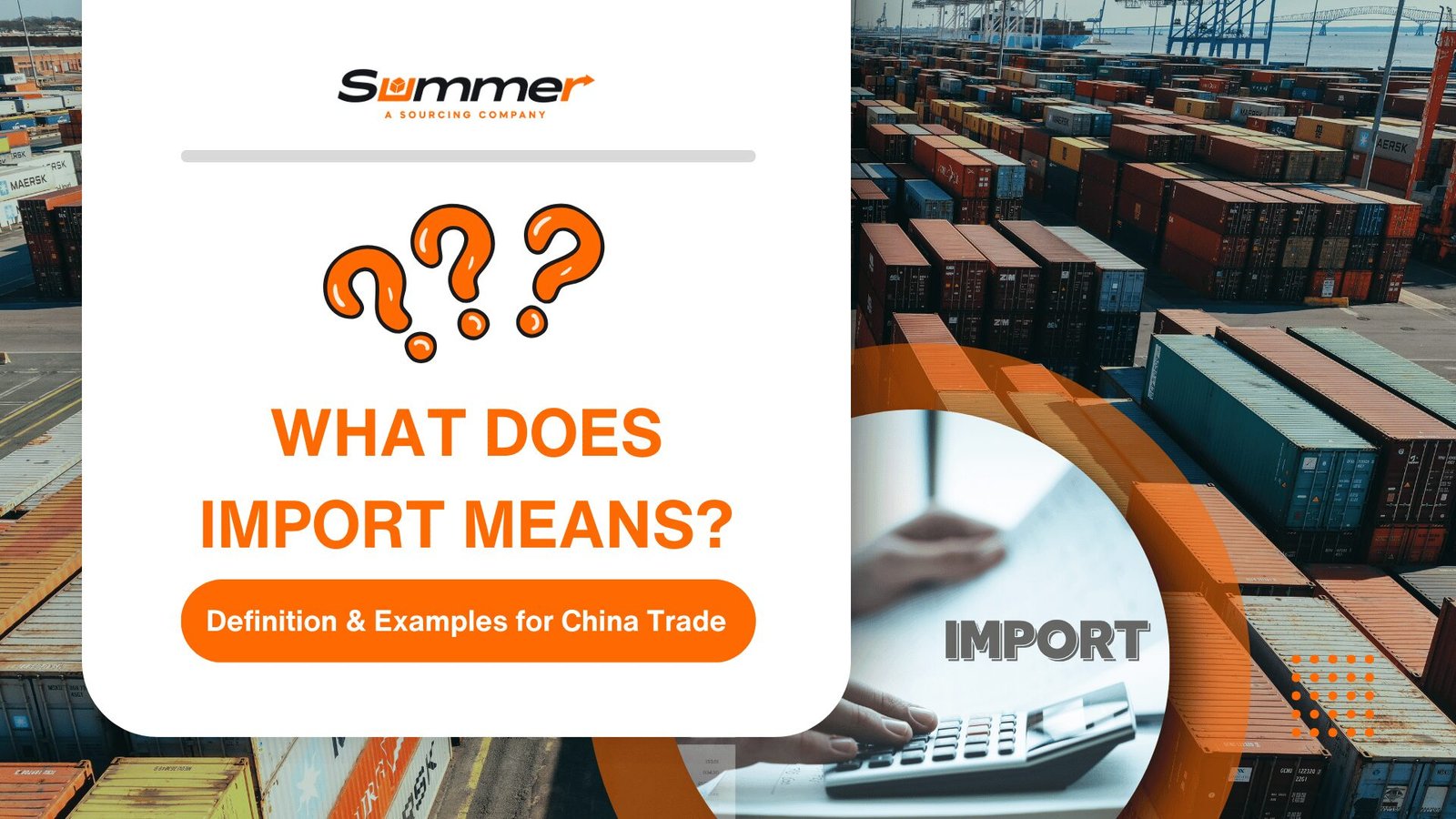What Does Import Mean? A Beginner’s Guide to China Trade Terms
September 9, 2025

Understanding import meaning is crucial for anyone entering international trade, especially when sourcing from China. Import simply refers to bringing goods or services into a country from abroad for sale or use, making it the foundation of global commerce.
Whether you’re a student exploring trade concepts or a new entrepreneur considering China sourcing, grasping the import meaning helps you navigate international business confidently. At Dongguan Summer Technology Sourcing, we’ve guided countless beginners through their first importing journey, and it all starts with understanding these fundamental terms.
What Is the Basic Import Meaning?
The import meaning centers on the legal process of bringing foreign-made products into your home country for commercial purposes. When you purchase goods manufactured in China and ship them to your country, you’re importing those products.
This process involves several key elements that define the complete import meaning. First, the goods must cross international borders, moving from the exporting country (like China) to the importing country. Second, proper documentation and customs clearance are required to make the transaction legal. Finally, import duties or taxes may apply depending on the product type and trade agreements between countries.
Real-World Examples of Import Activities
To better understand import meaning, consider these practical examples from China trade. A US retailer purchasing electronics from Shenzhen factories is importing those products. Similarly, when European businesses source textiles from Guangdong manufacturers, they’re engaging in import activities.
Moreover, the import meaning extends beyond large corporations. Small businesses buying phone accessories, home décor, or fitness equipment from Chinese suppliers through platforms like Alibaba are also importers. Even individual entrepreneurs purchasing samples for product testing fall under the import meaning umbrella, though quantities and regulations may differ.
Key Differences: Import vs Export
While exploring import meaning, it’s essential to understand its relationship with exports. From China’s perspective, when manufacturers ship products to international buyers, they’re exporting. However, from the buyer’s viewpoint, receiving those same goods represents importing.
This dual perspective helps clarify the complete import meaning within global trade dynamics. Countries typically track both import and export statistics to measure their trade balance. For businesses working with China sourcing services like ours, understanding both sides ensures smoother communication with suppliers and better logistics planning.
Legal Requirements for Import Operations
The practical application of import meaning involves compliance with various legal requirements. Most countries require import licenses for certain products, customs declarations for all shipments, and payment of applicable duties or taxes.
Additionally, understanding import meaning includes knowing about product safety standards, labeling requirements, and documentation needs. For instance, importing electronics from China requires:
- FCC certification for US markets
- CE marking for European Union
- Proper product labeling in local languages
- Commercial invoices and packing lists
- Bills of lading or airway bills
These requirements vary by product category and destination country, making professional guidance valuable for new importers.
Common Import Terminology for Beginners
Expanding your knowledge beyond basic import meaning involves learning related terminology. FOB (Free on Board) indicates when ownership transfers from seller to buyer during shipping. CIF (Cost, Insurance, and Freight) means the seller handles shipping costs and insurance to the destination port.
Furthermore, understanding import meaning includes terms like customs clearance, duty rates, and harmonized system codes. These concepts become crucial when calculating total import costs and ensuring compliance. Working with experienced China sourcing partners helps navigate these technical aspects while you build your knowledge foundation.
Let’s talk about your product or sourcing needs!
Let our team handle the sourcing, product development, and logistics—so you can focus on building your brand with confidence.

Getting Started with Your First Import
Now that you understand the fundamental import meaning, taking your first steps becomes more manageable. Start by researching your target products and identifying reliable Chinese suppliers through verified platforms or sourcing services.
Subsequently, the practical application of import meaning involves requesting samples, negotiating terms, and understanding shipping options. Consider partnering with experienced professionals who can guide you through customs procedures, documentation requirements, and quality control processes. This approach minimizes risks while you gain hands-on experience with the import meaning in practice.
